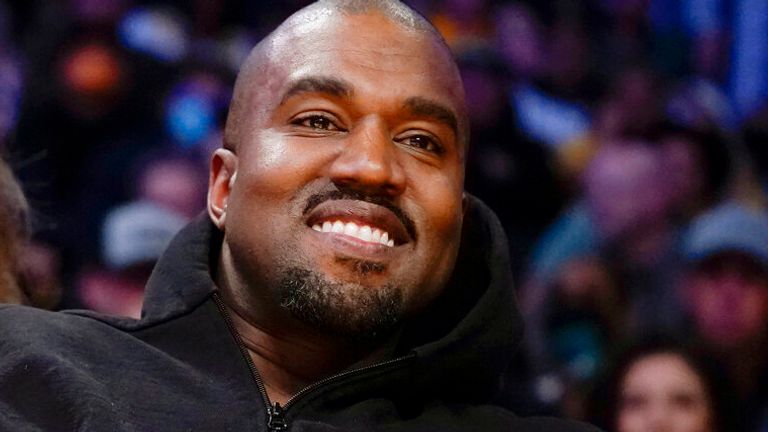In a move that sent shockwaves through the fashion and entertainment industries, Adidas officially announced its decision to sever its nearly decade-long partnership with Kanye West, now known as Ye, on October 25. This decision came after a series of controversial statements by West, sparking a significant backlash and calls for accountability from Jewish rights groups. “After a thorough review, the company has taken the decision to terminate the partnership with Ye immediately,” Adidas stated, marking the end of an era that blended music, fashion, and provocative social commentary.

Kanye West (Source: Entertainment Weekly)
Adidas’s relationship with Kanye West had been under scrutiny even before the artist’s recent outbursts. However, it was his explicit antisemitic comments that forced the company’s hand. Jonathan Greenblatt, CEO of the Anti-Defamation League, voiced a strong reprimand against Adidas for continuing their association with West amidst his spreading of “vile #antisemitism.” This public outcry was a pivotal moment, underscoring the growing intolerance for hate speech in the corporate world.
Kanye West’s fall from grace was not instantaneous but a result of a series of controversial acts and statements, culminating in his antisemitic posts on social media. His assertion on Instagram, insinuating that P. Diddy was controlled by Jewish individuals, tapped into age-old antisemitic stereotypes, causing Instagram to restrict his account. Unabated, West continued his tirade on Twitter, leading to another account suspension. These actions not only highlighted his problematic views but also tested the social responsibility of corporate giants like Adidas.
Adidas’s decision to cut ties with West was not without significant financial repercussions. The partnership had been immensely profitable, with the Yeezy brand being a billion-dollar enterprise that significantly boosted Adidas’s portfolio. Yet, the company stated, “Adidas does not tolerate antisemitism and any other sort of hate speech,” emphasizing that the moral cost outweighed the financial gains. The termination is expected to cost Adidas nearly €250 million in net income for the year, a stark testament to the price of taking a stand against hate.
Moreover, the controversy surrounding West had broader implications beyond the immediate financial hit to Adidas. It sparked a wider conversation about the responsibility of brands in moderating the conduct of their endorsers and the power of public backlash in shaping corporate policies. Adidas, with its historical background and founders’ ties to the Nazi Party, was particularly sensitive to accusations of supporting antisemitism, making their disassociation from West a crucial step in maintaining their corporate integrity.
As we reflect on the tumultuous relationship between Adidas and Kanye West, it’s clear that the saga was more than a mere celebrity fallout. It was a moment of reckoning for the fashion industry and for public figures in the age of social media. The controversy serves as a reminder of the potent mix of celebrity influence, corporate responsibility, and the ever-present shadow of history.
Kanye West’s journey from a celebrated artist and fashion mogul to a figure mired in controversy underscores the fragile balance between creative genius and the responsibility that comes with public influence. As the dust settles, the Adidas-Ye saga will undoubtedly be remembered as a significant chapter in the ongoing dialogue about fame, accountability, and the power of words in shaping our collective values.






